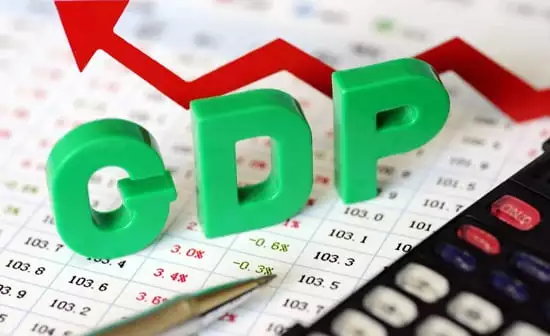What is GDP? GDP Formula, GDP Definition & Meaning
Gross Domestic Product (GDP) is a measure of the economic output of a country. It represents the total value of all goods and services produced within a country in a given year, and is used as a way to measure the size and health of an economy.
There are several ways to calculate GDP, but the most common method is to add up the total value of all goods and services produced within a country in a given year. This includes both private and public sector production, as well as domestic and foreign production.
GDP can be used to compare the economic output of different countries, and it is often used as an indicator of the overall prosperity and well-being of a society. It is also used to compare the economic performance of different periods within a country. For example, a country with a growing GDP is generally considered to be experiencing economic growth, while a country with a declining GDP is generally considered to be experiencing economic decline.
What is the GDP Formula?

The most common way to calculate GDP is by adding up the total value of all goods and services produced within a country in a given year. This can be done using the following formula:
GDP = C + I + G + NX
Where:
- C = consumption (the value of all goods and services consumed by households)
- I = investment (the value of all capital goods, such as factories and machinery, produced within a country)
- G = government spending (the value of all goods and services purchased by the government)
- NX = net exports (the value of all exports minus the value of all imports)
This formula is known as the expenditure approach to calculating GDP, as it measures the total expenditure on goods and services within an economy. There are other ways to calculate GDP, such as the income approach (which measures the total income earned within an economy) and the production approach (which measures the total value of all goods and services produced within an economy).
The Importance of GDP in Economic Development
It is considered to be an important indicator of the size and health of an economy, and as such, it is closely watched by economists and investors.
There are several reasons why GDP is important to economists and investors:
- It helps to measure the economic performance of a country: GDP is often used as a way to measure the economic performance of a country over time. It can be used to compare the economic output of different countries and to track the economic growth or decline of a particular country.
- It helps to inform policy decisions: Governments and policymakers often use GDP data to inform their decisions about economic policy. For example, if a country has a low GDP, policymakers may decide to implement policies to stimulate economic growth.
- It helps to guide investment decisions: Investors often use GDP data to guide their investment decisions. For example, an investor may be more likely to invest in a country with a growing GDP, as this suggests that the economy is healthy and growing.
- It helps to gauge the overall prosperity and well-being of a society: GDP is often used as an indicator of the overall prosperity and well-being of a society. A country with a high GDP is generally considered to be more prosperous and well-off than a country with a low GDP.
Overall, GDP is an important measure of the economic output of a country and is closely watched by economists and investors for insights into the size and health of an economy.



